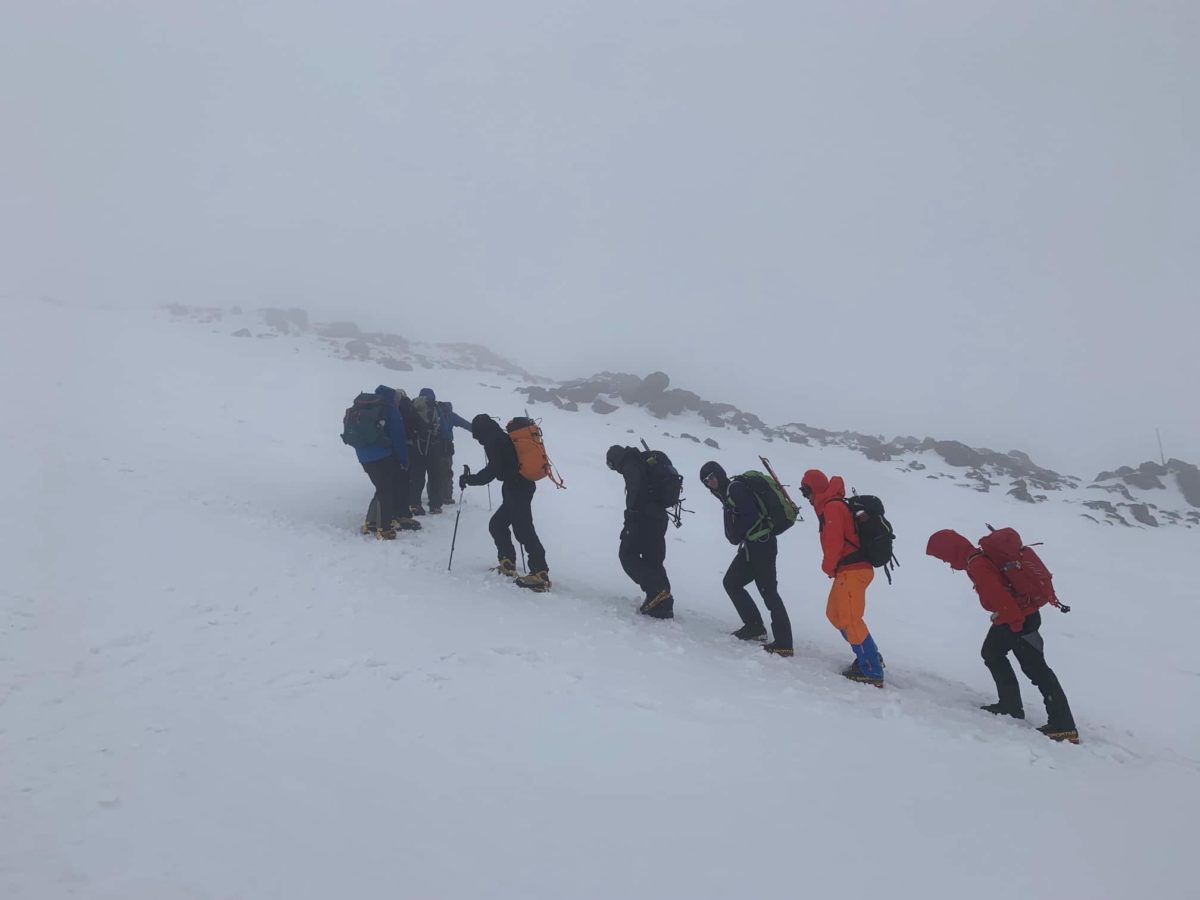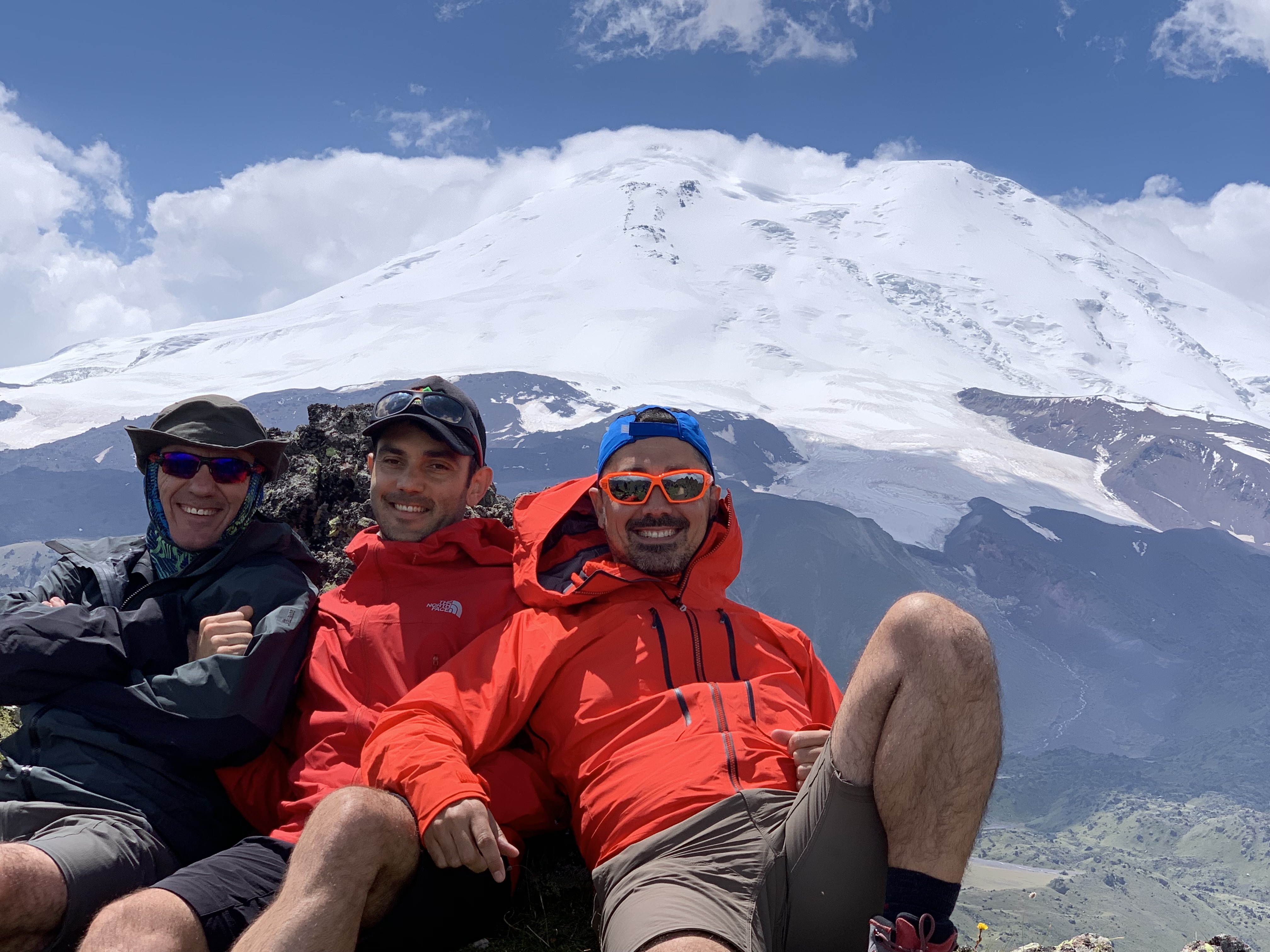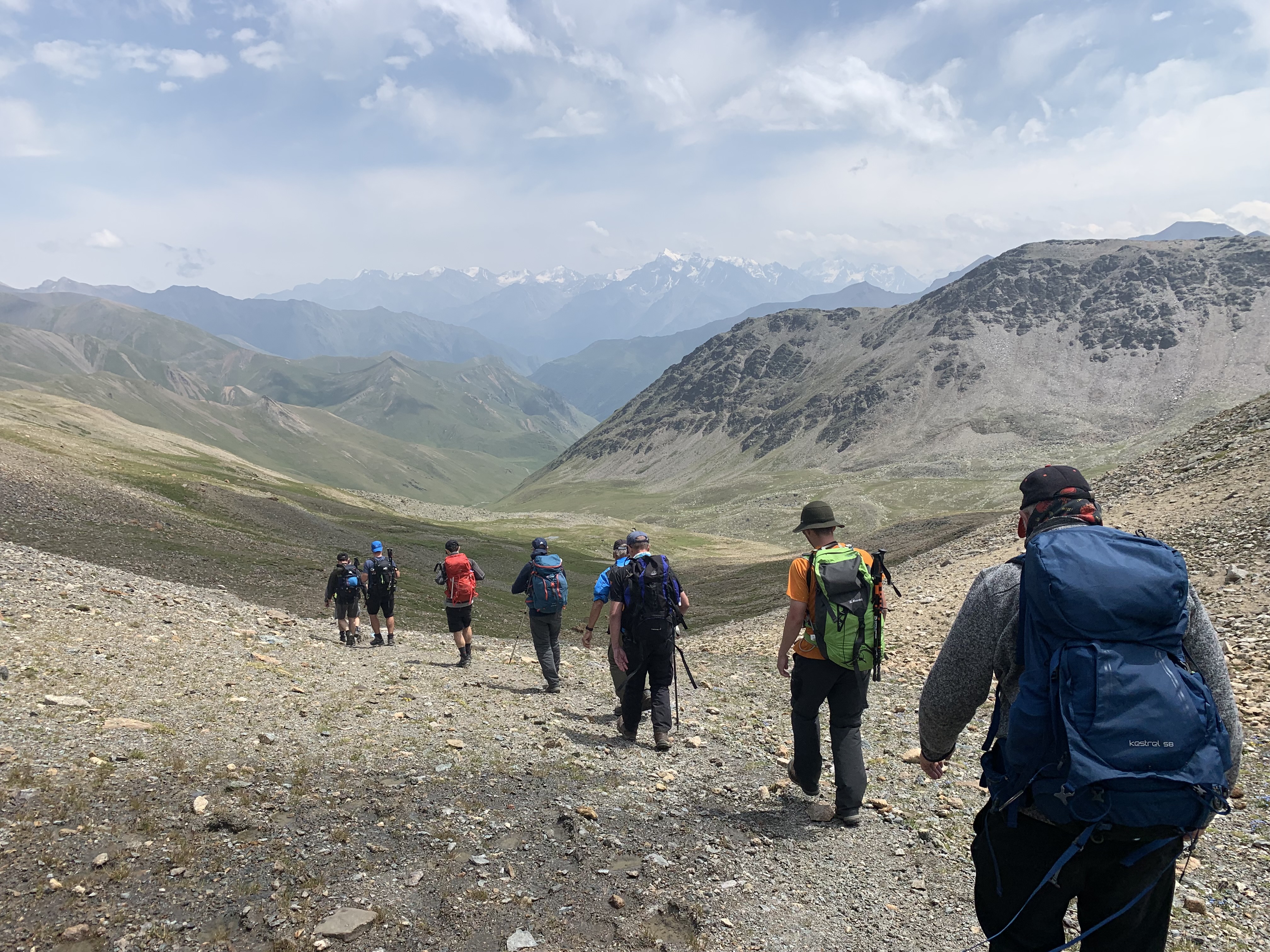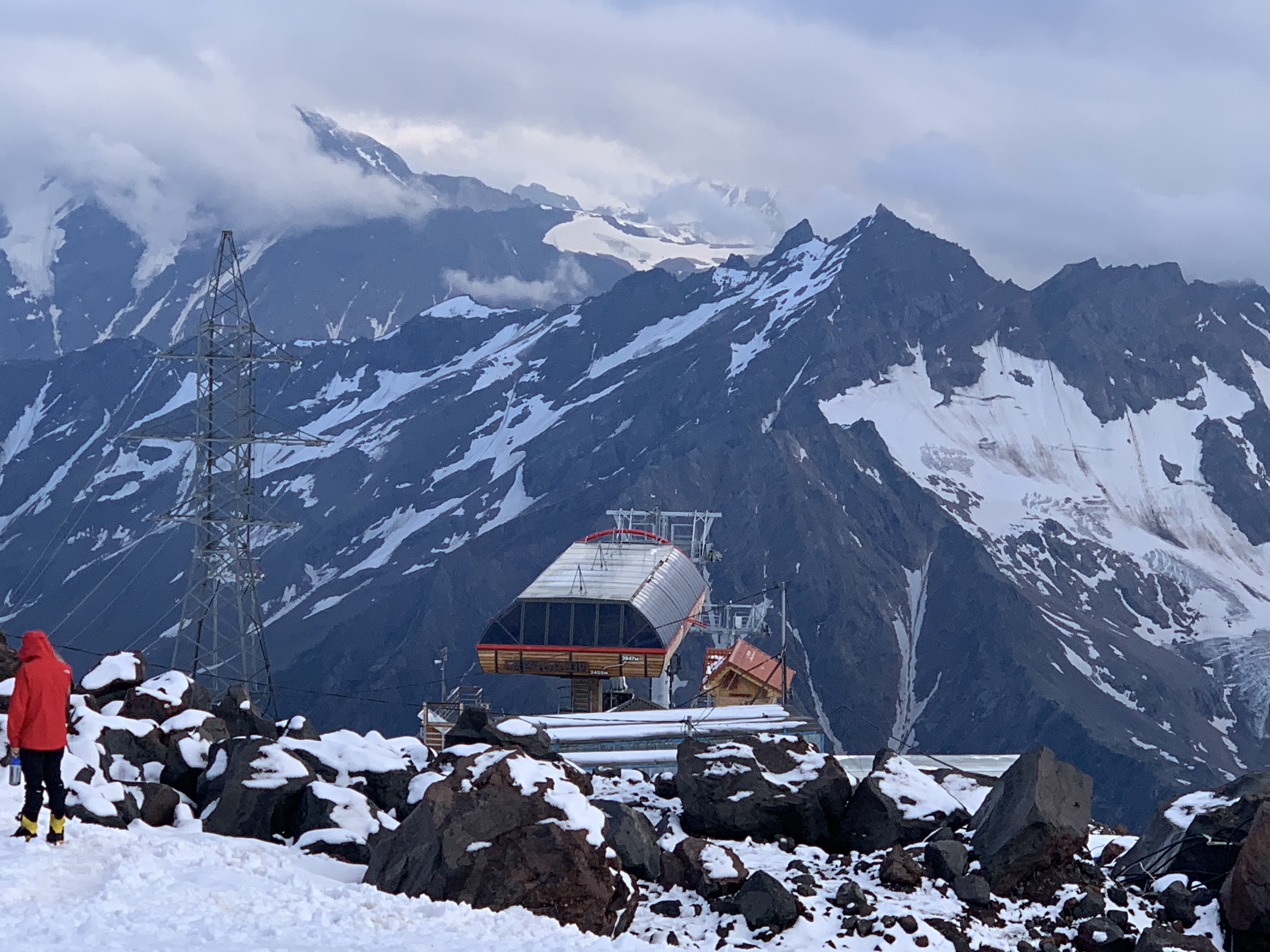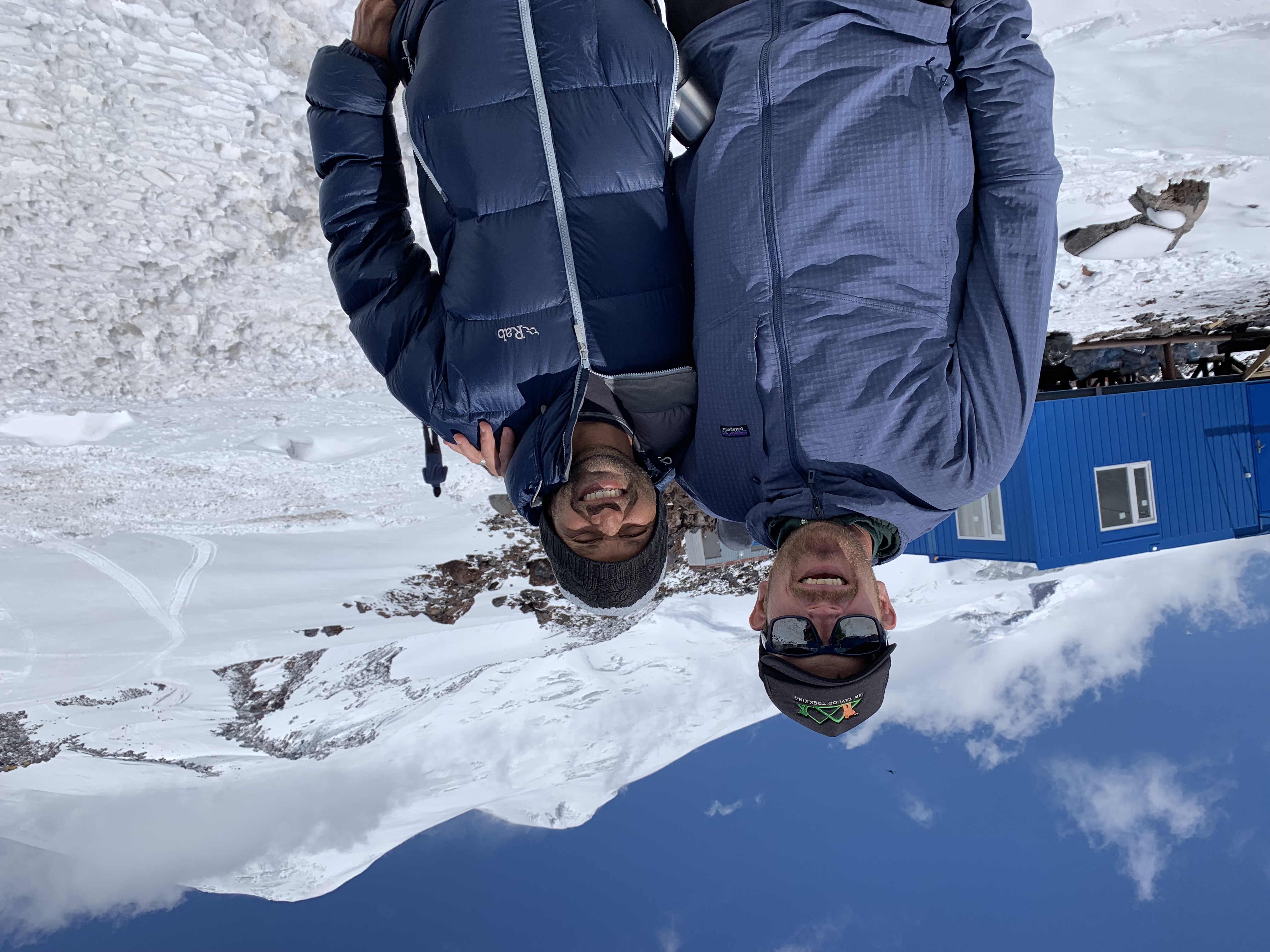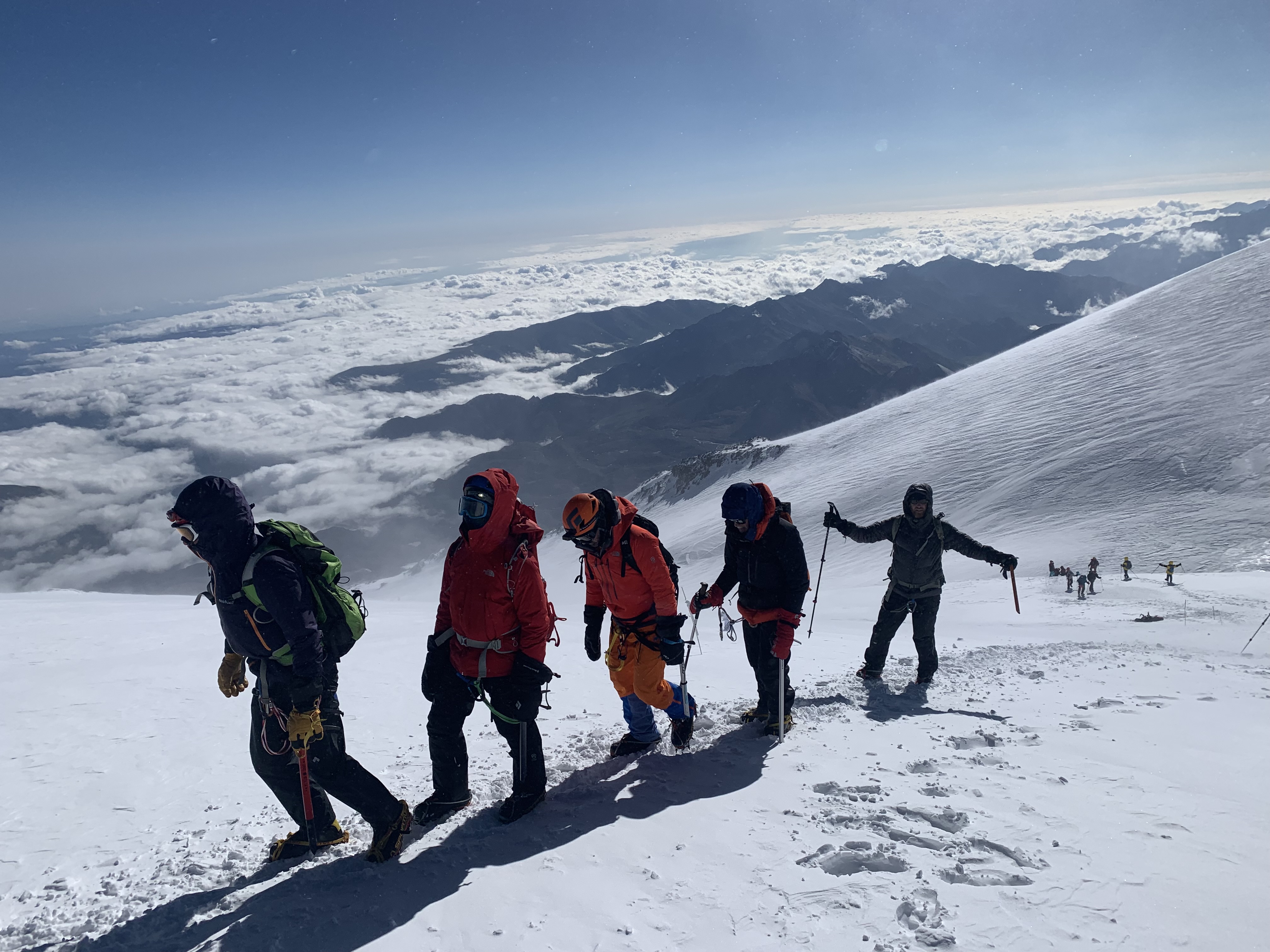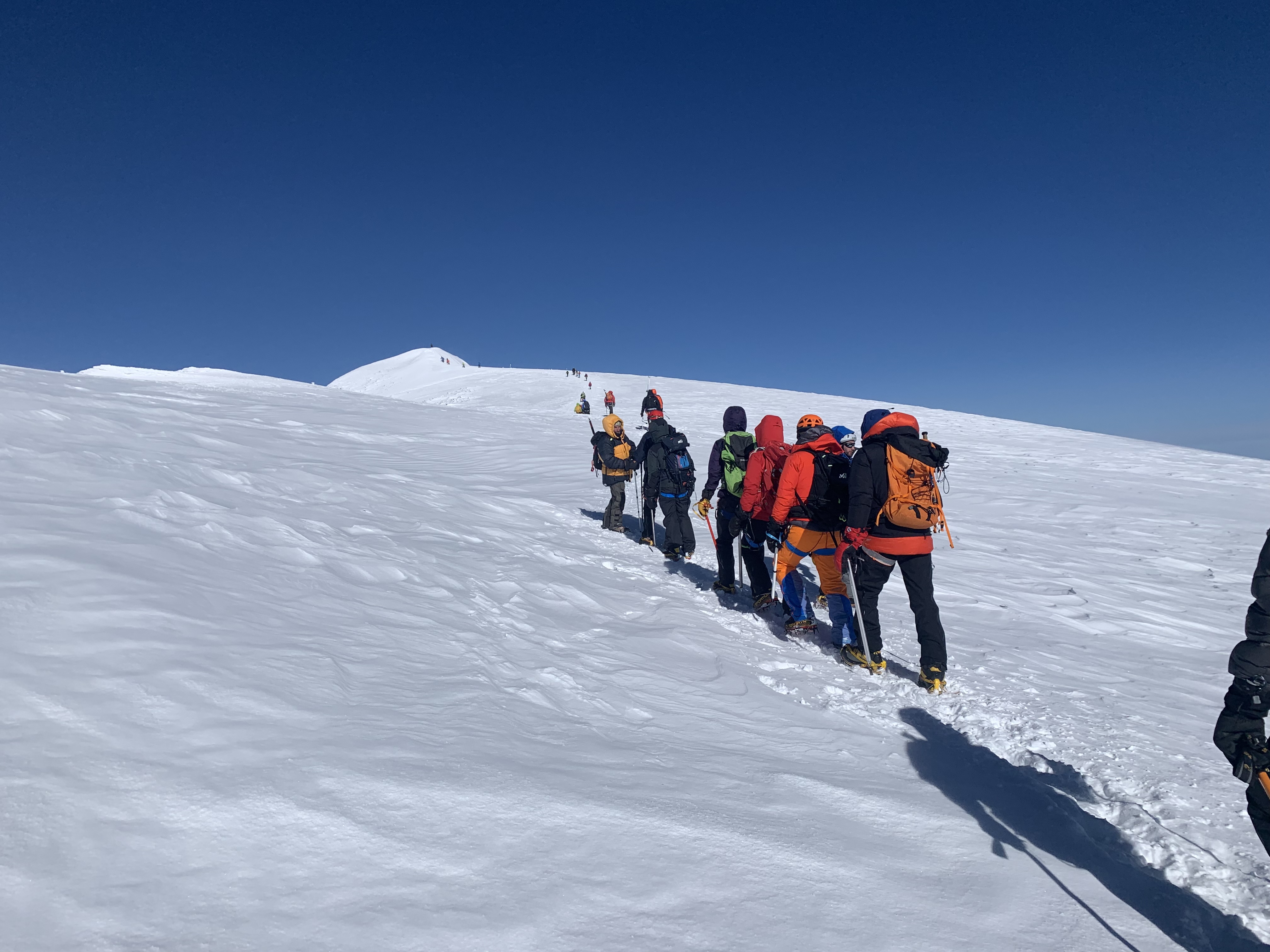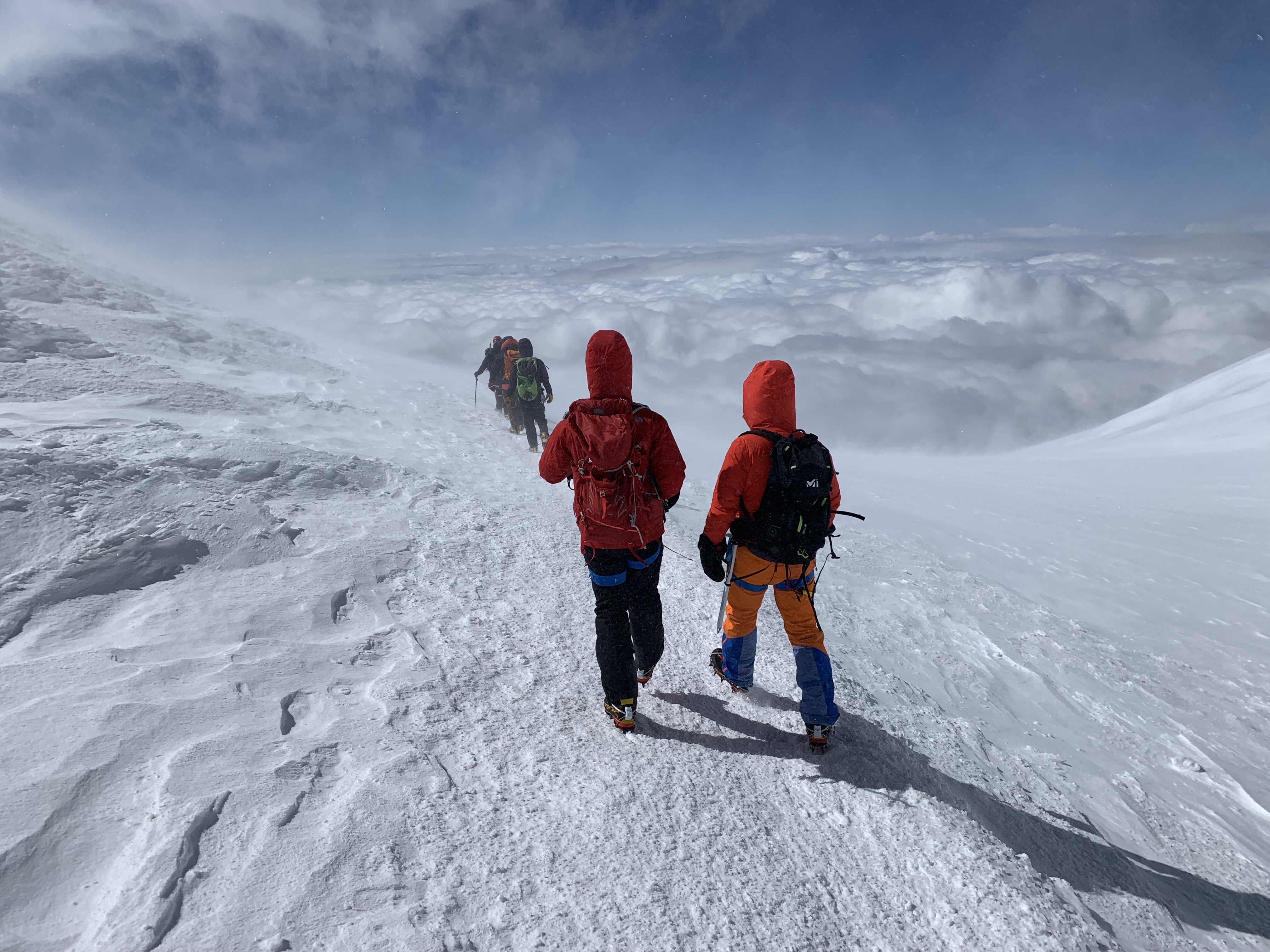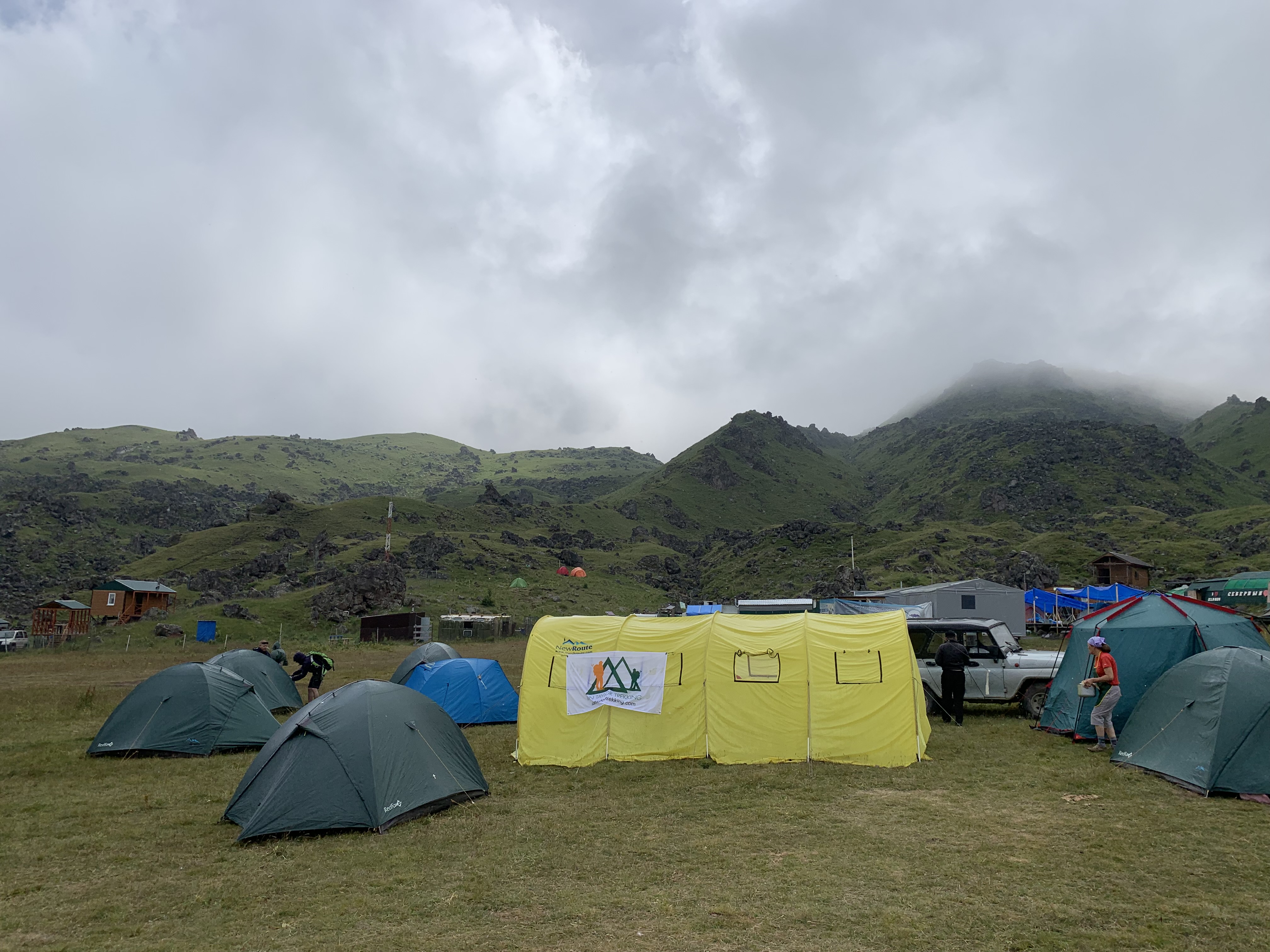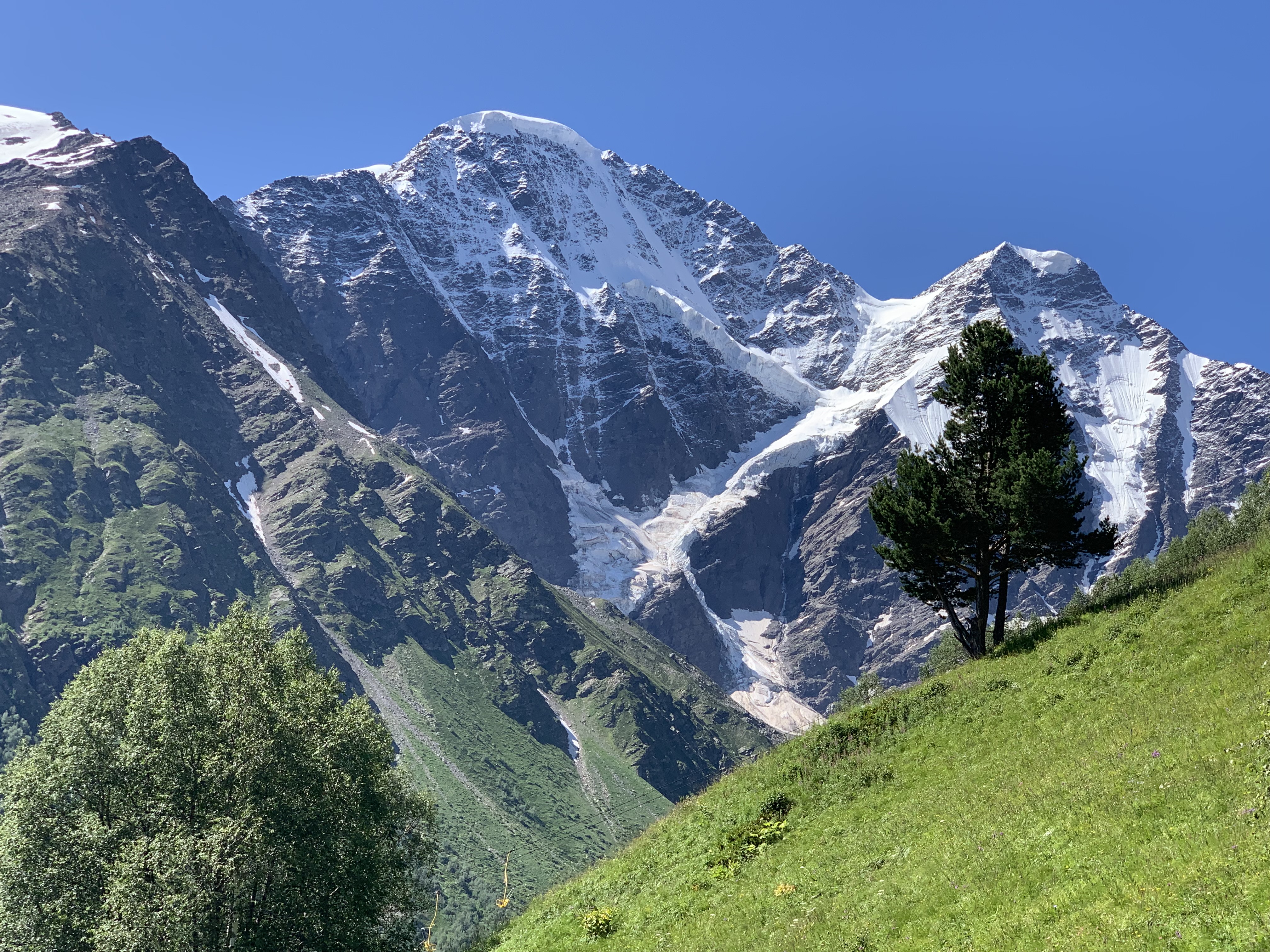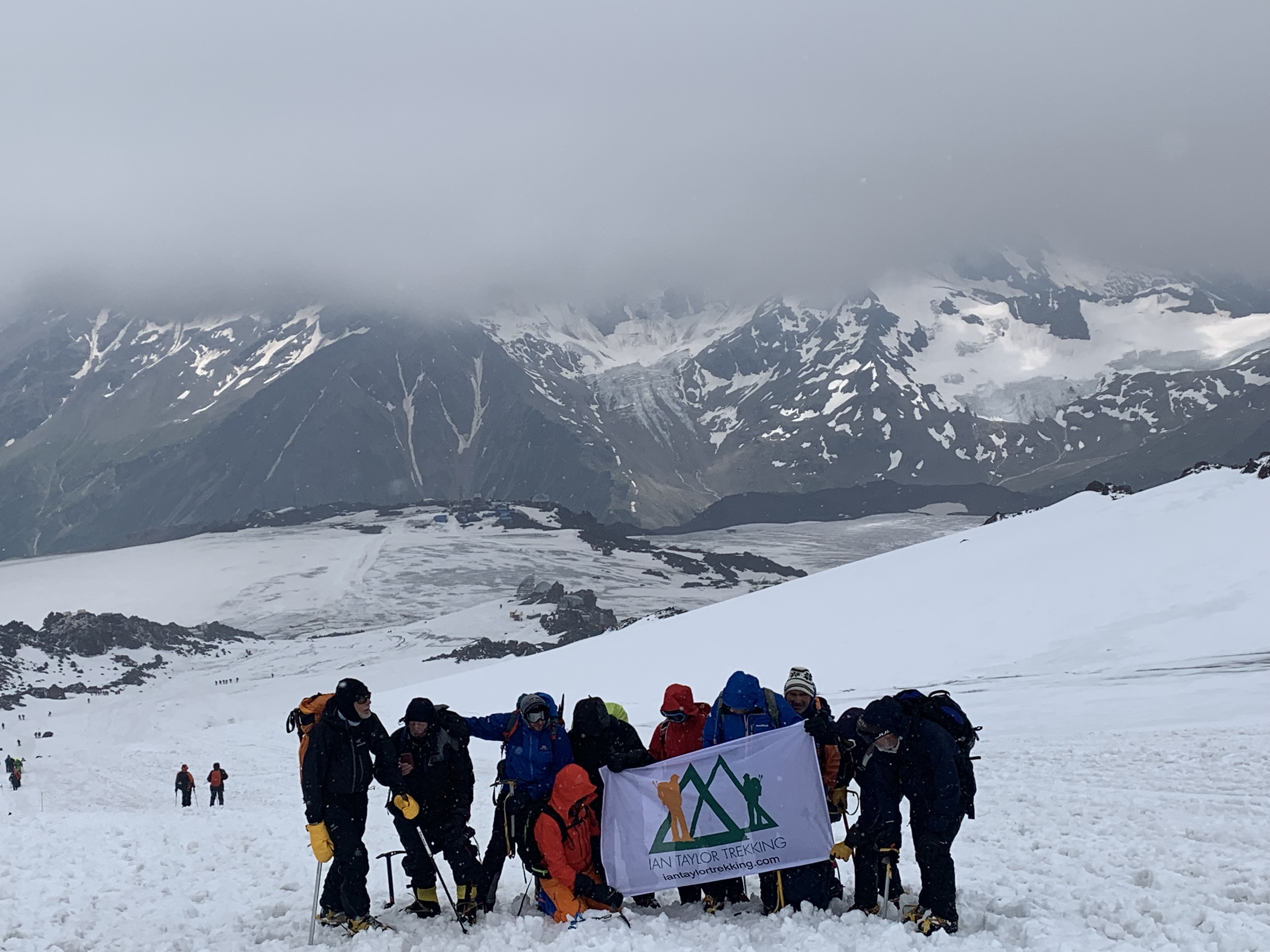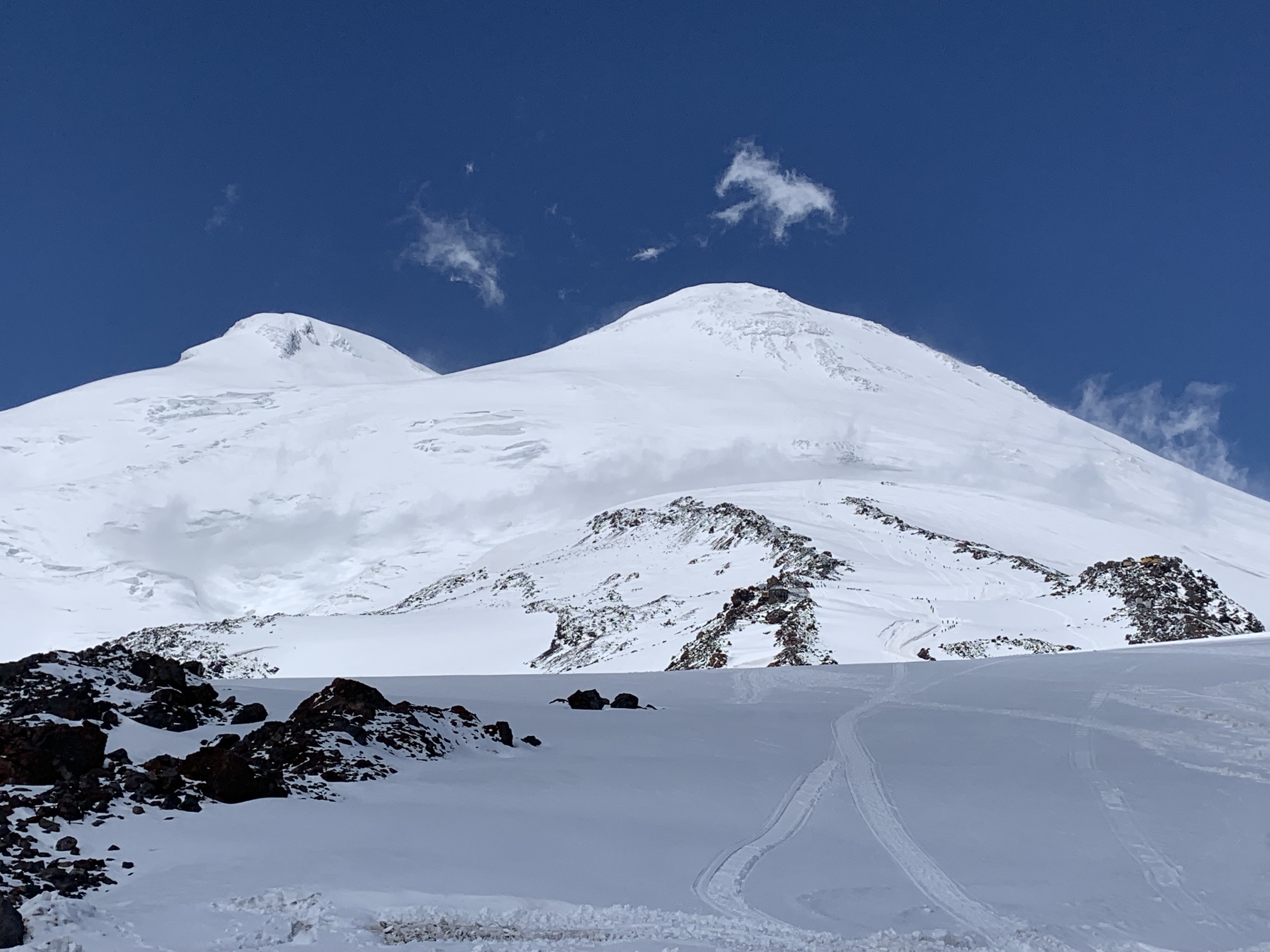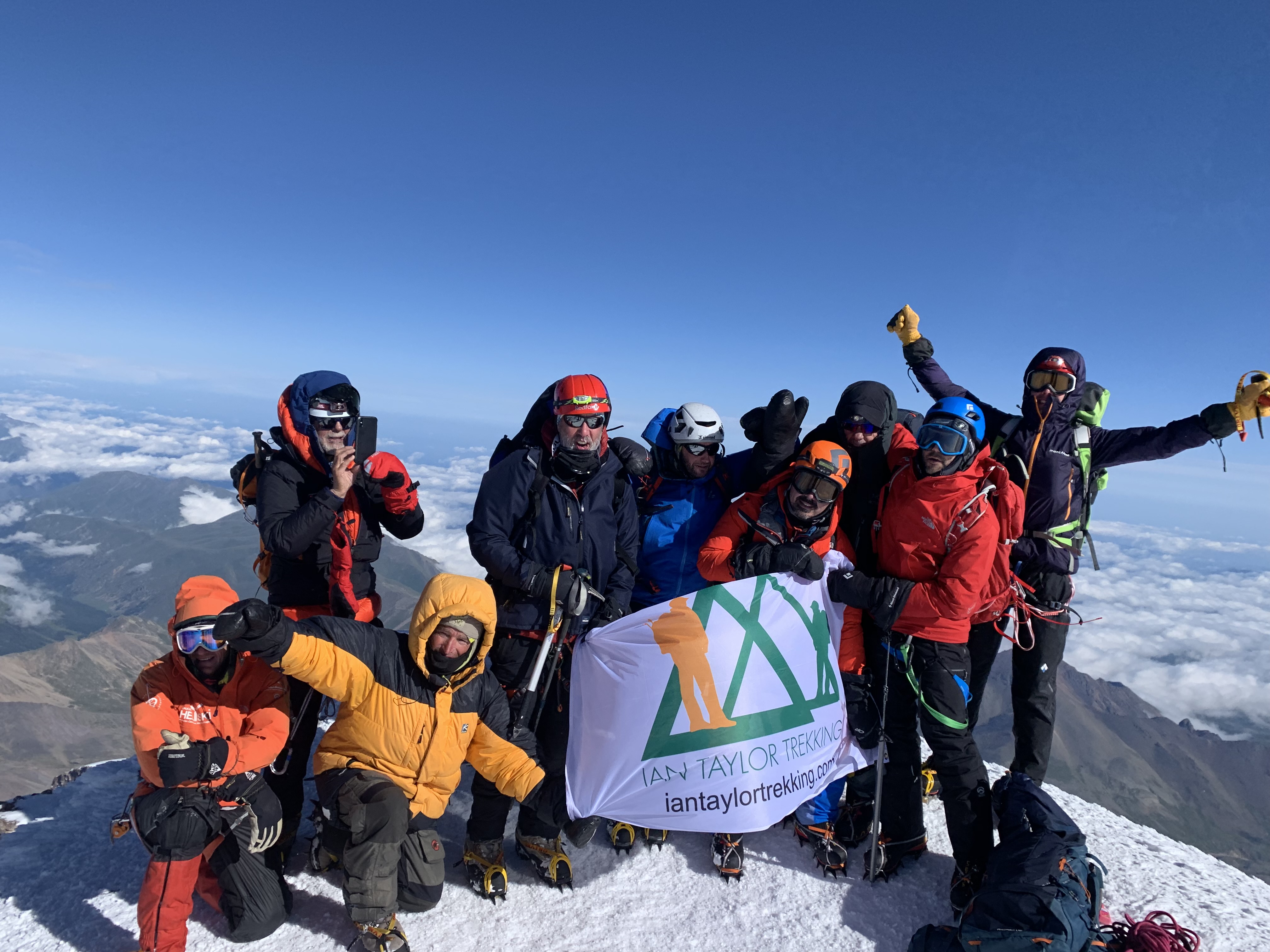How Hard is it to Climb Mount Elbrus? Climbing Mount Elbrus comes down to three things. Firstly, if you want to reach the summit you need two/three potential summit attempts built into your itinerary. Secondly, you need to come with the right physical training and preparation. Finally, you need an itinerary and team support with years of experience. Check out our Elbrus itinerary and top tips.
Is it Hard to Climb Mount Elbrus
I have been lucky enough to climb Everest to the top and Mount Elbrus 10+ times to date. Ian Taylor Trekking have run over 90 trips to Mount Elbrus as a result, we have extensive experience on Mount Elbrus. We are always happy to chat with you directly.
Picking the Right Itinerary
There are many challenges to a successful summit of Mount Elbrus. We have attempted to alleviate most of the key challenges in our tried and tested itinerary. We have run many different itineraries over the years. This has led us to developing the itinerary linked above. Our unique itinerary gives you the safest and best chance at reaching the summit, while experiencing the best of the Elbrus region.
Learn From the Elbrus Experts
Depending on your experience at altitude, these are just some elements that will determine your success. If you are used to hiking up and down hill weekly and used to carrying weighted backpack and training 5 days a week then climbing Mount Elbrus will be a lot more achievable. If not you need to develop a training plan building strength and endurance. Get signed up and we can help you. Learn more.
How Many Days Should Your Itinerary have?
Remember the weather on Mount Elbrus can be harsh. You do need a minimum of 8 days with spare summit attempts. We have developed the best 12 day itinerary that explores the best of the Elbrus region. This itinerary also offers 3 chances at the summit.
How Long our the Trekking Days?
You will walk over 60 miles from start to finish on our exciting itinerary. Most of this distance is covered on the first 6 days on the Itinerary. Once we go up on the mountain we will be covering less distance. For example you will cover 3.5 miles from the huts at 12,795 feet to the summit at 18,510 feet.
What is the Total Ascent?
We have designed our 12 day itinerary to give optimal acclimatization. By climbing high and sleeping lower without a doubt, this helps you adapt better to the lack of oxygen. Our 12 day itinerary covers 6,757m or 22,167 feet throughout the whole trip. Learn more.
What is the Total Descent?
One of the reasons for a longer itinerary is excellent acclimatization. It also gives you the opportunity to experience the very best of the Elbrus region. What goes up must come down meaning, you will descent 7,617m or 24,990 feet on our unique Elbrus Itinerary.
What Sort of Training Should you be Doing?
We have 20 years high altitude trekking and mountaineering experience available to you. My highest recommendation is to look at the daily elevation gains in addition to daily distances. Try and emulate these distances and or elevation gains in your daily training.
The best way to train for high altitude is build up to carrying double the weight you will carry on the mountain. If you will carry 7kg/ 15lbs on the mountain then, build up to carrying 14kg/ 30lbs. This type of training will give additional strength and conditioning for low oxygen environments. Learn more.
What Gear Will you Need?
If you sign up to one of our trips we send you an itemized kit list. Our kit list will be very specific to our trips importantly, we can help you gather the right gear for your trip. We are always happy to recommend equipment for you. Their is an option to rent some of the mountaineering equipment before going high on the mountain. We highly recommend bringing your own mountaineering boots.
Is Mount Elbrus Steep?
Most of the terrain on the trek and mountain is 20 to 30 degree angle trekking. We have some short video’s of the terrain across the mountain. You do need to be used to walking with weighted backpack on these sorts of angles so your legs are used to this type of trekking. Always prepare physically for deep snow.
How Much Should I be Training Per Week?
Firstly, your training will depend on where you start from. Secondly, I highly recommendation building from 5 to 10+ hours per week. Thirdly, spend most of your training in your endurance zone. Learn more. You can do some weight training, cross training yoga and interval training. Finally, most of your training should be specific hill work with weighted back pack building up to carrying double the weight. We are happy to help you get the correct information so you can come fully prepared.
How High is Mount Elbrus?
Elbrus stands at 5,642m or 18,510 feet. If you climb on the safer south side you will encounter more people along with more rescue services. Climbing from the south side offers you the better support. The north side is possible but we recommend coming in a small group if you want to give yourself the best chance at success.
Best Months to Climb Mount Elbrus
I highly recommend climbing in June, July, August or September. I have personally climbed Mount Elbrus in these four months along with May and October. You can climb Mount Elbrus in May and October in short, we do not recommend it. You should stick to the better months to climb. Check out our UPCOMING TRIPS.
Be Careful What you Read on the Internet
You will read all sorts of opinions on how hard the Mount Elbrus climb actually is. This will depend on range of factors. Everyone will have their own thoughts from their personal experience. Remember, most people have only climbed Elbrus once. Their experience will be limited and will depend greatly on how they acclimatized, weather and conditions at the time of their climb. If someone says Elbrus was easy likewise, look at their age, experience, ability and training. Maybe they are an experienced hiker, mountaineer with lots of experience at high altitude.
If someone says climbing Mount Elbrus was the hardest thing they have ever done, look closely at their background. Look at their experience, age, training regime and mountaineering background. Most people underestimate high altitude because we see it time and time again. We know that if you have more acclimatization, along with specific training you can be safe and successful.
Do I Think Elbrus is Difficult?
I think Climbing Mount Elbrus is straight forward mountaineering. There are a wide range of other factors that can make Elbrus easier or harder. From my experience, make sure you have the right physical preparation and especially the right acclimatization. Weather conditions can play a major factor in your experience.
Some other factors include the pace you travel at on the mountain, fatigue, sleep, hydration at the time of their climb. Acclimatization has a major impact on how you perform high on the mountain. Experience at altitude is important as the best climbers are the ones who are always in control of their movement, pace, heart rates and breathing. Your Elbrus itinerary and acclimatization schedule should be major considerations. Two keys factors you can control are having the best acclimatization for your climb and coming with specific strength, endurance and conditioning needed in the body to manage this serious challenge.
Mount Elbrus is Demanding
If you decide to start your summit night from the huts at 3,900m/ 12,795 feet as a result, your summit night on Mount Elbrus will be long. You would be trekking up 1,742m/ 5,715 feet of ascent at high altitude. It can take up to 9 hours to reach the summit and in variable weather conditions you push safety limits to the maximum. Once you reach the summit, you then have to return back to the Huts at 3,900m / 12,795 feet. This is an additional 4 hours of hiking down hill. You will be on your feet for 12 / 14 hours with minimal rest. This is hard no matter how physically conditioned you are.
The days leading up to the summit day can be hard because, your body is being over worked trying to adapt to the lower levels of oxygen. So the learning over years and years of running Elbrus trips is follow this ITINERARY if you want to cover the elevation, minimize risk, have a great experience and enjoy the Journey. Learn from our mistakes.
How Hard Should you be Training for Your Elbrus Climb
Most of us sit on a computer 5, 6, 7, 8 hours a day and don’t have the physical conditioning in our legs, back, calf’s, quads. You have to get this physical strength in order to limit fatigue, enable fast recovery on the mountain and be fit enough to endure this challenging climb. The most effective way to train for mountain is to walk up and down hills with weight.
If you can also get to a gym you need to build strength and endurance. Carry weight in your back pack day, after day building up the weight you will carry to around 15kg/ 33lbs to give you the best physical conditioning possible. Do you walk 6, 7, 8, 9 hours on a multi-day basis at home if so, you should be in good shape. If not, you really need to focus on load carrying as a major part of your preparation.
There is no One Size Fits all for Training
If you are climbing Mount Elbrus look at your itinerary, examine the route, elevation gains up and down, distances and then develop a training plan based off this information. Not everyone has hills to train on so CONTACT US and we can help you understand how you should be preparing for this mountaineering adventure. We know the mountain, terrain and what it takes to enjoy this amazing experience on Mount Elbrus.
To sum up, It can be as hard or easy, this depends on you and your level of commitment to your training and preparation. You need to get the right answers to your questions. We have the answers to your questions along with training advice. Read some REVIEWS from our trips. We have the team and the success rates for your Mount Elbrus Trip. We look forward to hearing from you today.

